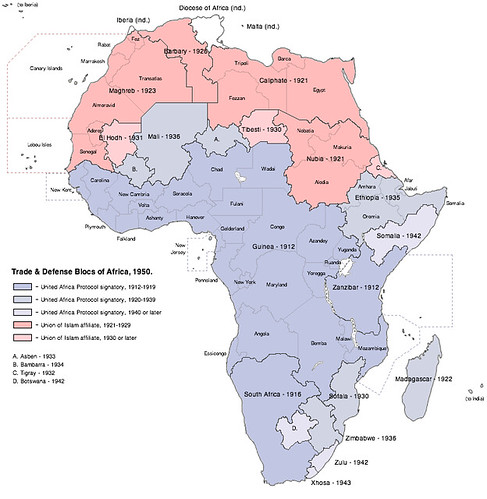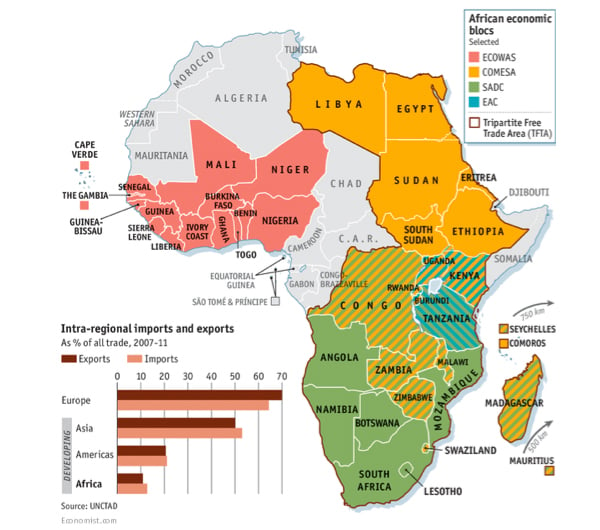

Africa has multiple trade agreements there are 14 trading blocs with overlapping members most countries belong to at least two blocs, while many belong to three. They need a visa to travel to just 45 percent of African countries, can get a visa on arrival in 35 percent of countries, and can enter without a visa in 20 percent.Īttempts to establish integration have historically been scattered and lacking in unity.

In fact, North Americans have an easier time traveling to and within the continent than Africans. Only 20 percent of nations allow Africans to enter without visas, with 25 percent offering visas on arrival. To travel to other countries in Africa, Africans need visas to enter 55 percent of states on the continent. According to Quartz, most have visa laws that highly restrict the movement of its citizens, making it difficult for them to gain access to other countries, creating another obstacle to trade.Ī recent report by the African Development Bank (AfDB) revealed some troubling statistics regarding this issue. Perhaps most illustrative of Africa’s disconnection lies in its countries’ travel policies. Problems that have long plagued Africa, including poor infrastructure and mistrust between countries due to past conflict, all play a part in hampering trade between countries, according to an article in ICTSD. With foreign direct investment on the continent declining, its increased implementation is now arguably becoming more vital to the future of Africa than ever before.Īlthough African leaders may discuss the need for increased regional trade, oftentimes employing rhetoric that promotes the vision of “pan-Africanism” and “one-Africa,” this vision is far from realization. This figure pales in comparison to other continents, such as 40 percent in North America and 60 percent in Western Europe. According to The Economist, it makes up only 12 percent of Africa’s total trade. Its potential economic opportunities are vast by allowing African nations to take advantage of economies of scale, generate income and jobs, and access other benefits associated with market integration.ĭespite this, intra-African trade is infrequent. AFRICA - Intra-African trade has long been a topic of much discussion among Africa’s policy analysts.


 0 kommentar(er)
0 kommentar(er)
